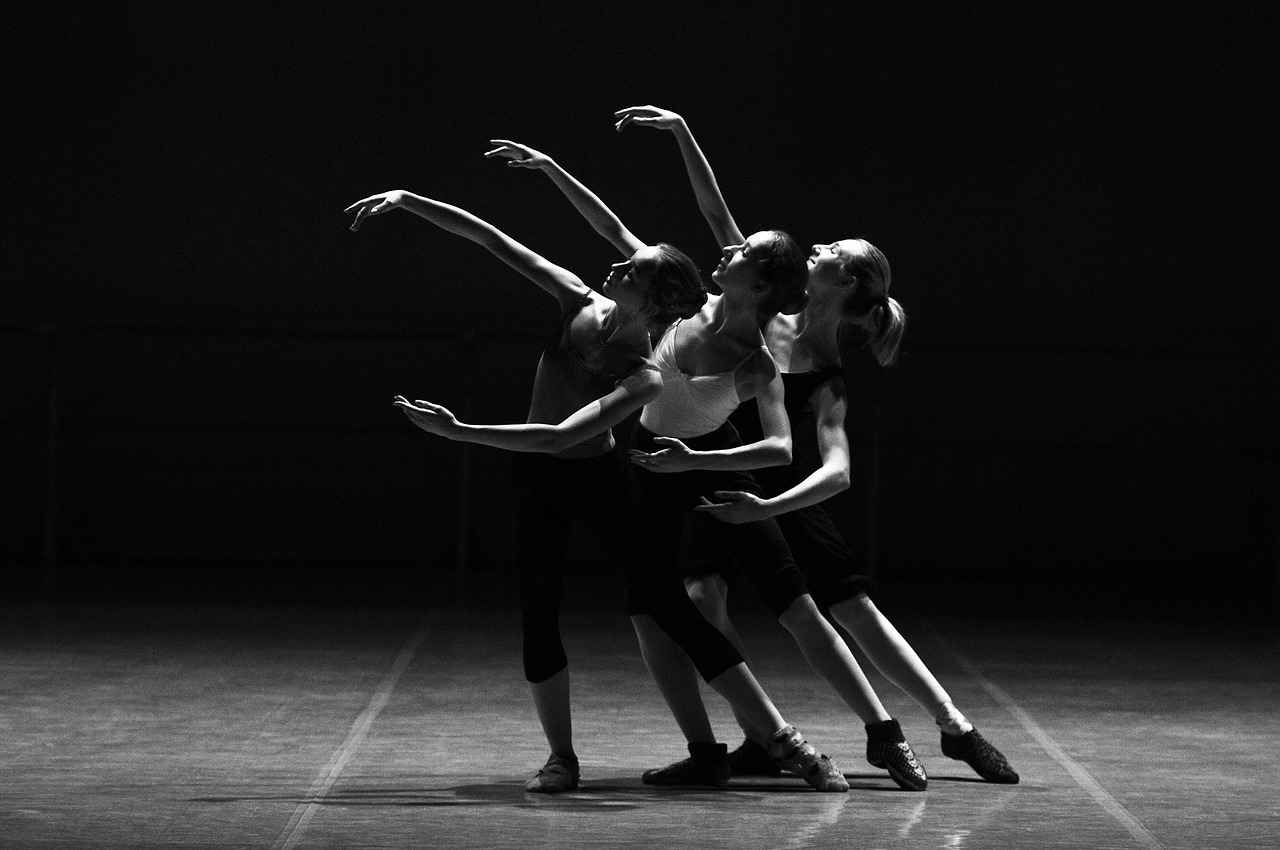Zoe Saldana’s career has been marked by numerous iconic roles, but her nude scenes have sparked significant conversation about privacy, public perception, and the implications for actors in Hollywood. This article examines the complexities surrounding these scenes, delving into how they affect not just Saldana but the broader entertainment industry.
Zoe Saldana has made a name for herself in films that often push the envelope. One of her most notable nude scenes occurred in the film Drumline, where her character’s vulnerability is showcased in a powerful way. Another significant moment came in After Earth, where her portrayal contributed to the film’s emotional depth. These scenes, while controversial, have played a crucial role in her evolution as an actress.
By taking on these roles, Saldana has challenged traditional norms in Hollywood, proving that nudity can be more than just a gimmick; it can serve as a pivotal storytelling device. The complexity of her characters often allows audiences to see beyond the physical, engaging with deeper narratives that resonate on emotional levels.
The inclusion of nude scenes in films can have a profound impact on an actor’s career. For some, it can be a stepping stone to greater visibility and acclaim. However, there are also significant risks involved. Actors like Saldana often find themselves navigating a tightrope between artistic expression and public scrutiny.
On one hand, nude scenes can enhance storytelling and character development, providing actors with unique opportunities to showcase their range and depth. On the other hand, they can lead to typecasting, where actors become pigeonholed into certain roles based solely on their willingness to perform nude. This duality highlights the complexities actors face in their careers.
The public’s response to Saldana’s nude scenes has been mixed. While many fans appreciate her willingness to embrace vulnerability, others criticize her choices, often reflecting broader societal attitudes towards nudity in film. Social media plays a significant role in shaping these opinions, amplifying both support and criticism.
Critics often argue that nudity can detract from an actor’s talent, while fans may see it as a bold move that showcases authenticity. This dichotomy illustrates the varying perceptions of nudity and its impact on an actor’s public image.
The ongoing privacy debate in Hollywood has significant implications for actors like Saldana. With the rise of social media and the 24-hour news cycle, maintaining personal boundaries has become increasingly challenging. Actors often find their private lives scrutinized, leading to a heightened sense of vulnerability.
Legal considerations surrounding privacy in filmmaking are evolving. Actors must navigate complex contracts and industry standards that may not always prioritize their comfort or consent. As societal norms shift, the conversation around privacy and consent in the film industry continues to develop, prompting actors to advocate for their rights more actively.
Filming nude scenes raises important ethical questions about consent, representation, and the treatment of actors on set. Ensuring that actors feel comfortable and respected is paramount. Various practices are in place to protect actors, including closed sets and intimacy coordinators, who help navigate these sensitive moments.
Filmmakers must recognize their responsibility in creating a safe environment. The treatment of actors during these scenes can significantly affect their mental well-being and career trajectory. As the industry progresses, it is crucial that ethical considerations remain at the forefront of discussions surrounding nude scenes.
Actors can take proactive steps to safeguard their privacy while navigating the complexities of the film industry. Setting clear boundaries regarding their personal lives and public appearances is essential. This includes making strategic choices about roles and engaging with social media in a way that maintains their desired level of privacy.
Ultimately, the conversation around Zoe Saldana’s nude scenes serves as a reflection of the broader challenges facing actors today. As they navigate the delicate balance between artistic expression and personal privacy, their choices continue to spark important discussions about ethics and representation in film.
In conclusion, Zoe Saldana’s experiences highlight the ongoing dialogue surrounding privacy, consent, and the evolving landscape of Hollywood. As actors face these challenges, their choices not only shape their careers but also influence societal perceptions of nudity in film.

What Are Zoe Saldana’s Most Notable Nude Scenes?
Zoe Saldana is a renowned actress known for her captivating performances in various blockbuster films. Throughout her career, she has taken on a range of roles, some of which include notable nude scenes that have sparked conversations about privacy, representation, and artistic expression in Hollywood. In this section, we will delve into some of her most significant performances that feature nudity and explore how they have contributed to her career trajectory.
One of Zoe Saldana’s most recognized roles is in the film Drumline (2002), where she played the character Laila. Although the film primarily focuses on the world of marching bands, it does include a scene that showcases her in a vulnerable moment, marking an early instance where Saldana’s talent and charisma were on display. This role helped her gain visibility in Hollywood, setting the stage for her future successes.
Another significant film is Avatar (2009), directed by James Cameron. In this groundbreaking film, Saldana plays Neytiri, a Na’vi warrior. While the character does not appear fully nude, the film’s use of motion capture technology and the portrayal of her character’s alien form brought forth discussions about nudity in a sci-fi context. Saldana’s performance was pivotal in showcasing her ability to blend physicality with emotional depth, earning her critical acclaim and solidifying her status as a leading actress in the industry.
Moreover, in the film Colombiana (2011), Saldana portrays a skilled assassin seeking revenge for her family’s murder. The film features several intense and intimate scenes that highlight her physical prowess and emotional vulnerability. The combination of action and personal narrative within these scenes allowed Saldana to showcase her versatility as an actress, further establishing her as a force in Hollywood.
In addition to these films, Saldana’s role in Guardians of the Galaxy (2014) as Gamora, the green-skinned assassin, also merits attention. While the film does not contain explicit nude scenes, it presents a complex character who navigates themes of trust, betrayal, and redemption. The portrayal of Gamora has resonated with audiences, leading to a deeper understanding of female characters in action films and contributing to ongoing discussions about representation in the genre.
Overall, Zoe Saldana’s performances in films featuring nude scenes demonstrate her commitment to her craft and her willingness to take on challenging roles. These portrayals not only contributed to her career success but also sparked important conversations about the representation of women in film and the implications of nudity in storytelling.

How Do Nude Scenes Impact an Actor’s Career?
The world of cinema is a complex tapestry of storytelling, emotion, and performance. Among the various elements that can shape an actor’s career, the inclusion of nude scenes stands out as a particularly contentious topic. It invites a myriad of reactions from audiences and industry insiders alike. This article explores the multifaceted impact of nude scenes on an actor’s career trajectory, weighing both the advantages and risks involved.
Nude scenes can serve as a double-edged sword in the realm of acting. For some actors, these scenes can be a significant stepping stone in their careers, while for others, they may present unforeseen challenges. Understanding the impact of nude scenes requires a closer examination of both the benefits and drawbacks that come with such performances.
- Enhanced Storytelling: Nude scenes often play a crucial role in the narrative, allowing actors to embody their characters more authentically. When done thoughtfully, these scenes can elevate the overall storytelling.
- Character Depth: Performing nude can provide actors with the opportunity to showcase their range and emotional depth. It can signify vulnerability, strength, or transformation, creating memorable moments that resonate with audiences.
- Increased Visibility: Actors who take on nude scenes may gain heightened visibility within the industry. This exposure can lead to more significant roles and opportunities, as casting directors often seek actors who are willing to push boundaries.
- Diverse Roles: Engaging in nude scenes can open doors to a wider variety of roles. Actors may be perceived as more versatile, making them attractive candidates for diverse projects.
- Typecasting: One of the significant risks of performing nude is the potential for typecasting. Actors may find themselves pigeonholed into specific roles, limiting their career growth.
- Public Backlash: Audiences can react harshly to nude scenes, leading to negative perceptions. This backlash can affect an actor’s public image and career trajectory.
- Emotional Impact: The decision to perform nude can be emotionally taxing. Actors must navigate their comfort levels and the potential for judgment from peers and fans.
The choice to engage in nude scenes is deeply personal and varies from actor to actor. Factors influencing this decision include the script’s context, the director’s vision, and the actor’s own comfort level. Many actors consult with trusted colleagues or mentors when faced with such choices, weighing the potential impact on their careers against their personal values and boundaries.
Ultimately, the inclusion of nude scenes in an actor’s portfolio can significantly shape their career path. While the potential benefits are enticing, the risks cannot be overlooked. Each actor must carefully consider their choices while navigating the complex landscape of the film industry.
What Are the Benefits of Nude Scenes for Actors?
Nude scenes in film often spark intense discussions, not only about the artistic merit of such choices but also about the implications they hold for actors’ careers. When considering the question, “What Are the Benefits of Nude Scenes for Actors?”, it’s essential to delve into the multifaceted advantages these scenes can provide.
One of the most significant benefits of nude scenes is their ability to enhance character depth and authenticity. When actors shed their clothing, they often also shed the layers of pretense that can accompany their roles. This vulnerability allows for a more profound connection between the character and the audience. For instance, in critically acclaimed films, actors who perform nude scenes often find themselves more relatable and humanized, which can lead to a stronger emotional response from viewers.
Performing in nude scenes can also serve as a platform for actors to showcase their range and versatility. Many casting directors look for actors who can embody a wide spectrum of emotions and situations. By taking on roles that require nudity, actors demonstrate their willingness to push boundaries and take risks, which can open doors to more diverse roles in the future. This is particularly important in an industry that often typecasts performers based on their previous roles.
Nude scenes can significantly increase an actor’s visibility in the industry. While there is a risk of being pigeonholed, many actors find that a well-executed nude scene can lead to greater recognition. For example, actors like Zoe Saldana have gained substantial attention for their performances that include nudity, often leading to subsequent roles in high-profile projects. The buzz generated around these scenes can elevate an actor’s status, making them more appealing to producers and directors.
In recent years, the discussion surrounding body positivity has gained momentum, and nude scenes can contribute to this dialogue. By portraying nudity in a respectful and artistic manner, actors can challenge societal norms and encourage audiences to embrace body diversity. This shift not only benefits the actors themselves but also resonates with viewers, fostering a culture of acceptance and understanding.
Finally, participating in nude scenes can lead to significant personal growth for actors. The experience often requires a level of self-acceptance and confidence that can be transformative. Many actors report feeling empowered after performing nude, as it challenges them to confront their insecurities and embrace their bodies. This newfound confidence can translate into their professional lives, enhancing their overall performance and presence on screen.
In summary, while nude scenes may come with their challenges, the benefits they offer actors are substantial. From enhancing character depth and increasing visibility to fostering important conversations about body positivity, these scenes can be a powerful tool in an actor’s career arsenal.
How Do Nude Scenes Influence Audience Perception?
Nude scenes in film and television have long been a topic of discussion, drawing both praise and criticism from audiences and industry professionals alike. When it comes to actors, these scenes can profoundly influence how they are perceived by the public. This article explores the nuances of how nude scenes affect audience perception, particularly in the case of well-known actors like Zoe Saldana.
Nude scenes can significantly alter the way audiences view an actor, often leading to increased visibility and recognition within the industry. The implications of these scenes go beyond mere aesthetics; they can shape an actor’s brand and public persona. Here are several key factors that contribute to this phenomenon:
- Enhanced Visibility: Nude scenes can propel an actor into the spotlight, making them more recognizable to the general public. This heightened visibility can lead to more significant opportunities in the industry, as casting directors may see the actor as more marketable.
- Character Depth: When done thoughtfully, nude scenes can add layers to a character, allowing audiences to connect more deeply with the story being told. This emotional engagement can lead to a more favorable perception of the actor’s skills and versatility.
- Breaking Stereotypes: Actors who choose to perform nude may challenge societal norms and stereotypes about body image and sexuality. By embracing their bodies, they can inspire discussions about acceptance and self-confidence, impacting how audiences perceive not just the actor, but also the themes presented in the film.
- Typecasting Risks: While nude scenes can enhance visibility, they can also lead to typecasting. An actor may be pigeonholed into specific roles that emphasize their physical appearance rather than their acting ability. This can limit their opportunities for more diverse roles in the future.
- Public and Critical Reception: The reaction to an actor’s nude scenes can vary widely among fans and critics. Some may applaud the boldness and artistry of the performance, while others may criticize the choice as gratuitous or exploitative. This duality in reception can significantly affect an actor’s reputation.
Moreover, the impact of nude scenes on audience perception can be compounded by the rise of social media. Platforms like Twitter and Instagram allow for immediate reactions to performances, which can quickly shape public opinion. An actor’s decision to perform nude can spark conversations that either elevate their status or lead to backlash, depending on the audience’s values and beliefs.
Ultimately, the influence of nude scenes on audience perception is complex and multifaceted. For actors like Zoe Saldana, these choices can open doors to new opportunities while simultaneously posing risks to their careers. As the entertainment industry continues to evolve, the conversation around nudity in film will likely remain a critical topic of discussion, reflecting broader societal attitudes towards body image, consent, and artistic expression.
Can Nude Scenes Open Doors for Future Roles?
In the world of film and television, the decision to perform nude scenes can be a pivotal moment for an actor’s career. While some may view it as a daunting challenge, for many, including notable figures like Zoe Saldana, these scenes can serve as a significant stepping stone toward more diverse and challenging roles. This article explores how nude scenes can open doors for future opportunities in the entertainment industry.
Nude scenes often require a level of vulnerability and authenticity that can showcase an actor’s range. When actors like Zoe Saldana embrace these moments, they signal to casting directors that they are willing to push boundaries. This willingness can lead to a perception of versatility, which is highly sought after in Hollywood. By stepping outside their comfort zones, actors can redefine their public personas and attract a wider array of roles.
- Increased Visibility: Performing in nude scenes can elevate an actor’s profile, making them more recognizable to audiences and industry professionals alike.
- Diverse Role Opportunities: Actors who take on challenging roles, including those that involve nudity, often find themselves considered for a broader spectrum of characters, from dramatic leads to complex supporting roles.
- Critical Acclaim: Many actors have received accolades for their performances in films that include nude scenes, demonstrating that such roles can lead to significant recognition.
Audience reactions to nude scenes can vary greatly, often influenced by cultural norms and personal beliefs. However, when performed tastefully and purposefully, these scenes can resonate deeply with viewers, enhancing their emotional connection to the story and characters. For instance, Saldana’s work has often been praised for its artistic merit, showing that when actors approach these scenes with intention, they can elevate the overall narrative.
While there are numerous benefits to performing nude scenes, there is also the risk of being typecast. Some actors may find themselves pigeonholed into specific roles that emphasize their willingness to appear nude. This can limit their opportunities, making it crucial for actors to choose their projects wisely. Balancing the allure of diverse roles with the potential for typecasting is a delicate dance that many in the industry must navigate.
In conclusion, while the decision to perform nude scenes is deeply personal and can carry both risks and rewards, it is undeniable that for many actors, including Zoe Saldana, these moments can open doors to more diverse and challenging roles. By showcasing their versatility and willingness to take risks, actors can redefine their careers and pave the way for future opportunities in the ever-evolving landscape of Hollywood.
What Are the Risks Associated with Nude Scenes?
When it comes to the film industry, the decision to perform nude scenes is often met with a mix of curiosity and concern. While there are undeniable benefits to such performances, including artistic expression and enhanced storytelling, the risks associated with nude scenes can be significant and multifaceted. This article explores the various risks that actors, particularly those like Zoe Saldana, may face when they choose to bare it all on screen.
One of the most pressing risks of performing nude scenes is the potential for typecasting. Actors who take on such roles may find themselves pigeonholed into specific types of characters, often leading to a limited range of opportunities. For instance, an actor known for their nude performances might struggle to be considered for more serious or dramatic roles, as casting directors may focus solely on their past performances rather than their overall talent. This can be particularly challenging for actors seeking to showcase their versatility.
Additionally, there is the risk of backlash from audiences. Public perception can shift dramatically based on how nude scenes are received. While some viewers may appreciate the artistic merit of such performances, others may react negatively, leading to harsh criticism or even online harassment. This backlash can affect an actor’s mental health and public image, making it crucial for them to weigh the potential consequences before agreeing to such scenes.
Moreover, the privacy invasion that can accompany nude scenes is a significant concern. Once an actor’s nude performance is captured on film, it becomes part of the public domain. This loss of control over their image can lead to unwanted scrutiny and objectification. In today’s digital age, where clips can easily be shared and circulated online, the implications for an actor’s privacy are profound. This concern is especially relevant for actors who may not have anticipated the level of exposure their nude scenes would bring.
Another risk to consider is the impact on personal relationships. Performing nude can create tension or discomfort in an actor’s personal life, particularly if their partner or family members have reservations about such portrayals. The emotional toll of navigating these personal dynamics can be significant, leading to stress and potential strain in relationships.
Lastly, there is the issue of unrealistic expectations that can arise from performing nude scenes. Actors may feel pressured to maintain a certain physical appearance or to continue taking on similar roles to meet audience expectations. This pressure can lead to unhealthy behaviors, including extreme dieting or body image issues, which can ultimately affect their overall well-being.
In summary, while nude scenes can offer actors unique opportunities for artistic expression and career advancement, they also come with a range of risks that must be carefully considered. From typecasting and public backlash to privacy concerns and personal relationship strains, the decision to perform nude is complex and deeply personal.
How Do Actors Navigate the Decision to Perform Nude?
Deciding to perform nude is a highly personal choice for actors, often surrounded by a myriad of factors that can influence their decision-making process. This choice is not merely about the physical act of undressing; it encompasses a complex interplay of script requirements, directorial vision, and the actor’s own comfort level with nudity.
When an actor is presented with a script that includes a nude scene, several key factors come into play. Firstly, the context of the scene is paramount. If the nudity serves a significant narrative purpose—such as portraying vulnerability or emotional depth—an actor may feel more inclined to participate. Conversely, if the nudity seems gratuitous or merely for shock value, an actor might hesitate.
- Script Quality: A well-written script can make a huge difference. Actors often look for scripts that are not only engaging but also treat nudity with respect and intention.
- Director’s Vision: The director’s approach can significantly influence an actor’s comfort level. A director known for creating a safe and respectful environment may encourage actors to feel more at ease with their decisions.
- Personal Comfort: Each actor has their own threshold for comfort regarding nudity. Factors such as body image, previous experiences, and personal beliefs play critical roles in this aspect.
Preparation for nude scenes involves both physical and emotional readiness. Many actors engage in fitness routines or undergo skin treatments to feel more confident in their bodies. However, the emotional aspect can be just as crucial. Actors often discuss their concerns with trusted colleagues, coaches, or even therapists to navigate the psychological implications of baring it all on screen.
Example Preparation Steps:1. Physical fitness and health routines2. Open discussions with directors and co-stars3. Mental health support, if needed4. Understanding the scene's purpose and context
In recent years, the film industry has seen a shift towards more ethical practices surrounding nude scenes. Many productions now employ intimacy coordinators—professionals who help choreograph intimate scenes and ensure that all parties feel comfortable and respected. This evolution aims to create a safer environment for actors, allowing them to focus on their performances without the added stress of potential discomfort.
Public perception can weigh heavily on an actor’s decision to perform nude. Some actors may fear backlash or negative scrutiny from fans and critics, which can lead to a reluctance to take on such roles. Conversely, a positive reception can enhance an actor’s reputation and lead to more diverse roles in the future. The balance between personal choice and public expectation is a tightrope that many actors must walk.
In summary, the decision to perform nude is multifaceted, requiring actors to consider a variety of factors, including script integrity, directorial influence, personal comfort, and public perception. As the industry evolves, so too do the standards and practices surrounding these sensitive scenes, making it essential for actors to navigate their choices carefully.

What Is the Public’s Reaction to Zoe Saldana’s Nude Scenes?
The public’s reaction to nude scenes in film can be a complex and often polarizing subject. When it comes to Zoe Saldana, the acclaimed actress known for her roles in major franchises such as Avatar and Guardians of the Galaxy, audiences have had varied responses to her performances that include nudity. This article delves into how viewers perceive Saldana’s choices and the broader implications of these reactions.
Fans and critics alike often have differing opinions regarding an actor’s decision to perform nude scenes. For Zoe Saldana, her bold choices have sparked discussions that range from admiration to criticism. Many fans appreciate her willingness to embrace nudity as a form of artistic expression, seeing it as a testament to her confidence and dedication to her craft. They argue that such scenes can serve to deepen the emotional resonance of a character, allowing for a more authentic portrayal of human experiences.
On the other hand, some critics argue that nudity can overshadow an actor’s talent, reducing their performances to mere spectacle. This perspective can lead to a form of typecasting, where an actress is primarily seen through the lens of her nude scenes rather than her full range of abilities. The debate often intensifies in the context of Saldana, as critics question whether her choice to appear nude enhances or detracts from her overall body of work.
In today’s digital age, social media plays a pivotal role in shaping public opinion. Platforms like Twitter, Instagram, and Facebook allow fans to express their thoughts on Saldana’s nude scenes almost instantaneously. Supportive comments often celebrate her bravery and artistic choices, while negative feedback can be swift and harsh, reflecting societal attitudes towards female nudity in film.
The viral nature of social media can amplify both praise and criticism, creating an environment where an actress’s choices are dissected and debated widely. This can lead to a phenomenon where the public’s perception is influenced not just by the performances themselves, but by the discourse surrounding them. For Saldana, navigating this landscape can be challenging, as she must balance her artistic expression with the potential backlash that comes from audiences’ reactions.
The varied reactions to Zoe Saldana’s nude scenes highlight larger societal issues regarding privacy, consent, and the representation of women in film. When audiences react strongly—either positively or negatively—it often reflects broader cultural norms and expectations surrounding female bodies. These reactions can impact not only Saldana’s career but also the opportunities available to other actresses who may be considering similar roles.
Moreover, the conversation around Saldana’s choices can influence how filmmakers approach nudity in their projects. As public sentiment evolves, so too does the industry’s approach to depicting nudity, leading to a more nuanced understanding of consent and representation. This ongoing dialogue is vital for fostering a more respectful and equitable environment for actors in Hollywood.
In conclusion, the public’s reaction to Zoe Saldana’s nude scenes serves as a microcosm of the larger discussions surrounding nudity in film. As audiences continue to engage with these topics, it is essential to consider the implications of their responses—not just for Saldana, but for the industry as a whole.
How Do Fans and Critics View Her Choices?
The decision for actors to perform nude scenes is often met with a spectrum of opinions from both fans and critics. In particular, when it comes to Zoe Saldana, her choices in this regard have sparked considerable discussion. Understanding the nuances of these reactions sheds light on the broader implications for her career and public image.
Fans and critics alike often have differing perspectives on Zoe Saldana’s decision to engage in nude scenes. For some fans, these performances are seen as an artistic expression that enhances the storytelling experience. They appreciate her willingness to embrace vulnerability and showcase her body in a way that aligns with the narrative. This segment of her audience tends to celebrate her bravery and views her choices as a testament to her commitment to her craft.
On the other hand, critics may argue that such decisions can lead to a type of objectification that overshadows an actor’s talent. They might express concerns that by performing nude, Saldana risks being pigeonholed into roles that emphasize her physical appearance rather than her acting ability. This perception can create a tension between the artistic merits of her performances and the potential for typecasting, which may impact her future career opportunities.
Moreover, the impact of social media cannot be overlooked in shaping public opinion. Platforms like Twitter and Instagram amplify reactions, with fans often rallying in support of Saldana, while critics may use these platforms to voice their disapproval. This dynamic can create a polarized environment where the discourse around her choices becomes highly charged. For instance, when Saldana starred in a film featuring a nude scene, social media erupted with both praise and criticism, reflecting the divided opinions among her followers.
Additionally, the cultural context plays a significant role in how her choices are perceived. In an era where conversations about body positivity and female empowerment are at the forefront, many fans view Saldana’s nude scenes as a bold statement about embracing one’s body. Conversely, critics may argue that the same scenes contribute to a problematic narrative about women in Hollywood, where their worth is often tied to their physicality.
Ultimately, the conversation surrounding Zoe Saldana’s nude scenes illustrates a broader societal debate about the roles and representations of women in film. As actors navigate these complex waters, their choices can lead to both acclaim and criticism, impacting their careers in profound ways. The challenge lies in balancing personal artistic expression with the expectations and perceptions of the audience.
In conclusion, the differing views on Saldana’s choices reflect the complexities of public perception in the entertainment industry. While some celebrate her boldness, others caution against the potential repercussions of such decisions. This ongoing dialogue highlights the intricate relationship between an actor’s work and their public image.
What Role Does Social Media Play in Shaping Opinions?
In today’s digital landscape, social media plays an undeniably significant role in shaping public opinion, especially regarding sensitive topics like nude scenes in film. As platforms such as Twitter, Instagram, and Facebook become increasingly popular, they serve as a double-edged sword for actors like Zoe Saldana. On one hand, they offer a space for supportive dialogue, while on the other, they can amplify critical backlash. This article explores how social media influences the conversation surrounding nude scenes, particularly in the context of Saldana’s performances.
Social media platforms are designed for rapid sharing and engagement, making them ideal for discussing cultural phenomena, including nude scenes in movies. When Zoe Saldana appears nude in a film, the immediate reactions can flood social media feeds, creating a whirlwind of opinions. These platforms allow fans and critics alike to voice their thoughts, often leading to trending topics that can shape the narrative around an actor’s choices.
One of the most significant aspects of this amplification is the diversity of voices that social media brings to the conversation. Supporters may praise Saldana for her bravery and artistic expression, highlighting how her nude scenes contribute to character depth and storytelling. Conversely, critics may argue that such scenes objectify women or detract from the film’s narrative. This dichotomy can create a rich tapestry of dialogue, but it also risks oversimplifying complex issues.
The implications of social media reactions are profound for actors like Saldana. On one hand, positive feedback can enhance an actor’s visibility and lead to increased opportunities. Actors who receive accolades for their performances may find themselves in demand for more challenging and diverse roles. For instance, a well-received nude scene can be viewed as a sign of versatility, opening doors to projects that require a broader emotional range.
However, the potential for negative backlash is equally significant. An actor’s decision to perform nude can lead to typecasting or even public shaming, particularly if the audience perceives the scene as gratuitous. This can impact an actor’s mental health and career trajectory, as they may feel pressured to conform to audience expectations or avoid certain types of roles altogether.
Fans and critics engage with actors’ choices on social media in various ways. Supporters often take to platforms to express their admiration, creating hashtags that celebrate an actor’s work. For example, after Saldana’s nude scenes, fans might share their thoughts using hashtags like #ZoeSaldanaStrong, fostering a sense of community and support.
On the flip side, critics may utilize the same platforms to voice their discontent, sometimes leading to heated debates. These discussions can escalate quickly, with comments sections becoming battlegrounds for differing viewpoints. The ease of sharing opinions can lead to a culture where actors are scrutinized more than ever, making it essential for them to navigate these waters carefully.
Social media undeniably shapes the conversation around nude scenes, influencing how audiences perceive actors like Zoe Saldana. While it can amplify positive reactions and foster supportive communities, it also poses risks of backlash and criticism. As the landscape of public opinion continues to evolve, actors must remain vigilant and thoughtful about their choices, understanding that their work will always be subject to scrutiny.

How Does the Privacy Debate Affect Actors Today?
The ongoing privacy debate in Hollywood has become a pivotal issue for actors, influencing not only their professional choices but also their personal lives. As the entertainment industry evolves, so do the expectations and pressures placed on performers. This article will explore how the privacy debate impacts actors today, examining the intersection of personal boundaries, public scrutiny, and the changing landscape of consent in filmmaking.
In an age where social media reigns supreme, actors face unprecedented challenges regarding their privacy. The constant scrutiny from fans and the media often blurs the line between their on-screen personas and real-life identities. One major concern is the leakage of personal information. With the rise of digital platforms, private moments can quickly become public, leading to serious repercussions for actors. For example, incidents of hacked private photos have caused significant distress for many celebrities, highlighting the need for stronger privacy protections.
- Social Media Exposure: Actors are often expected to maintain a public presence on social media, which can lead to oversharing and a loss of personal privacy.
- Public Scrutiny: Every action is closely monitored, and negative public perception can impact an actor’s career.
- Legal Vulnerabilities: The legal framework surrounding privacy is often inadequate, leaving actors exposed to potential exploitation.
Navigating privacy in Hollywood requires a delicate balance. Many actors are now taking proactive steps to protect their personal lives. Some choose to limit their social media presence, while others employ publicists to manage their public image. Additionally, actors are increasingly advocating for clearer industry standards regarding consent, especially in intimate scenes. Understanding the importance of setting boundaries is crucial for maintaining a sense of control over their image.
For instance, actors like Zoe Saldana have openly discussed their experiences with nude scenes and the importance of consent on set. By sharing their stories, they contribute to the dialogue around privacy and empower others to assert their rights. This shift towards transparency is essential in fostering a safer environment for all performers.
The pressure to conform to public expectations can take a toll on an actor’s mental health. The constant invasion of privacy and fear of judgment can lead to anxiety and stress. Many actors report feeling overwhelmed by the need to maintain a perfect image, which can detract from their ability to perform authentically. Mental health resources and support systems are becoming increasingly important in the industry as actors strive to find equilibrium between their public and private lives.
| Privacy Concerns | Mental Health Implications |
|---|---|
| Social Media Exposure | Increased anxiety and self-doubt |
| Public Scrutiny | Pressure to maintain a flawless image |
| Legal Vulnerabilities | Fear of exploitation and loss of control |
Actors can take several steps to advocate for their privacy rights within the industry. Engaging in open discussions about the importance of consent and privacy can help reshape industry standards. By participating in panels and workshops focused on these issues, actors can educate their peers and foster a culture of respect and understanding.
Moreover, forming alliances with organizations that support artists’ rights can amplify their voices. The collective action of actors can lead to meaningful changes in how the industry approaches privacy, ultimately benefiting everyone involved.
In conclusion, the ongoing privacy debate in Hollywood significantly impacts actors, shaping their careers and personal lives. As the industry continues to evolve, it is crucial for actors to advocate for their rights and navigate the complexities of privacy with confidence and integrity.
What Are the Legal Considerations Surrounding Privacy in Filmmaking?
The film industry is a complex landscape, especially when it comes to the intersection of privacy and artistic expression. For actors, the decision to perform in nude scenes is not just about the role; it involves navigating a myriad of legal considerations that govern privacy in filmmaking. This article aims to explore the various legal frameworks that impact actors, particularly when they are faced with the decision to appear nude on screen.
When discussing the legal considerations surrounding privacy in filmmaking, it’s essential to understand that laws can vary significantly by region and country. In the United States, for instance, the legal landscape is shaped by a combination of federal and state laws, as well as industry standards that have evolved over time. One of the primary legal frameworks actors must navigate is the concept of informed consent.
- Informed Consent: Actors are required to give informed consent before filming any nude scenes. This means they must fully understand what they are agreeing to, including how the footage will be used and distributed. Consent is not just a one-time agreement; it can be revoked at any time, and actors should be aware of their rights.
- Right to Privacy: Actors have a legal right to privacy, which protects them from unauthorized use of their likeness. If a scene is filmed without proper consent, actors may have legal grounds to pursue action against filmmakers.
- Defamation and Misrepresentation: If nude scenes are edited or presented in a way that misrepresents the actor or their consent, there can be legal repercussions. Actors should ensure that contracts clearly outline how their image will be portrayed.
Moreover, actors must also consider union regulations and industry standards. Organizations such as SAG-AFTRA (Screen Actors Guild-American Federation of Television and Radio Artists) provide guidelines and support for actors, ensuring that their rights are protected. These unions often advocate for clear contracts and transparency in the filming process, which can include stipulations about nude scenes.
In addition to these legal frameworks, the growing awareness of sexual harassment and abuse in the industry has led to stricter guidelines and protocols. Many production companies now implement intimacy coordinators—professionals who ensure that scenes involving nudity or simulated sex are conducted safely and respectfully. This practice not only protects the actors but also aligns with evolving societal norms about consent and respect in the workplace.
As societal attitudes toward privacy and consent continue to evolve, actors must remain vigilant about their rights and the legal frameworks that protect them. Understanding these legal considerations is crucial for any actor contemplating a nude scene, as it empowers them to make informed decisions about their careers and personal boundaries.
In conclusion, navigating the legal landscape of privacy in filmmaking requires a comprehensive understanding of informed consent, privacy rights, and industry standards. By being informed, actors can protect themselves and ensure that their artistic choices are respected and honored.
How Do Industry Standards Evolve Regarding Privacy?
The film industry has always been a reflection of societal values and norms, and as these values evolve, so too do the standards surrounding privacy and consent in filmmaking. This evolution is particularly evident in how nude scenes are approached, with an increasing focus on the rights and comfort of actors. The shift towards a more respectful and ethical treatment of performers is gaining momentum, fueled by both public discourse and changing industry practices.
Several key factors are driving the evolution of industry standards regarding privacy in filmmaking. Firstly, the #MeToo movement has played a pivotal role in raising awareness about consent and the treatment of actors on set. This movement has prompted many in the industry to reconsider how they approach sensitive scenes, leading to the establishment of more rigorous consent protocols.
Another significant factor is the increasing presence of social media, which allows actors to voice their concerns and experiences directly to their audience. This has created a more transparent environment, where public opinion can influence production practices. Actors like Zoe Saldana have used their platforms to discuss their experiences, bringing attention to the need for better privacy protections.
Moreover, the rise of intimacy coordinators has transformed how nude scenes are choreographed. These professionals ensure that all parties involved are comfortable and that consent is clearly communicated. This practice not only protects actors but also enhances the overall quality of the scene, as it allows for a more focused and respectful approach to filming.
Filmmakers are increasingly recognizing the importance of adapting to these changing standards. Many production companies are now implementing guidelines that prioritize actor safety and comfort. For instance, detailed discussions about nude scenes are becoming a standard part of pre-production meetings, ensuring that actors can voice their concerns before filming begins.
Furthermore, filmmakers are also considering the implications of how nudity is portrayed in their films. There is a growing awareness that nudity should serve a purpose in the narrative rather than being gratuitous. This shift encourages filmmakers to think critically about the context and necessity of nude scenes, leading to more thoughtful storytelling.
As industry standards evolve, actors are finding themselves in a more empowered position. They now have the tools and support to make informed decisions about their participation in nude scenes. This empowerment is crucial in a field where personal comfort and professional aspirations often intersect.
However, the changing landscape also presents challenges. While some actors may feel more confident in their choices, others may still face stigma or typecasting based on their past roles. The conversation surrounding privacy and consent is ongoing, and it is essential for actors to continue advocating for their rights and well-being.
In conclusion, the evolution of industry standards regarding privacy and consent in filmmaking reflects broader societal changes. As the industry adapts to these new norms, it is crucial that both filmmakers and actors work together to create a respectful and safe environment. This ongoing dialogue not only benefits those directly involved in the filmmaking process but also contributes to a more ethical and inclusive industry overall.

What Are the Ethical Considerations in Filming Nude Scenes?
Filming nude scenes is a complex and often controversial aspect of the film industry. It raises a multitude of ethical considerations that revolve around consent, representation, and the treatment of actors on set. As audiences become more aware of these issues, it is essential to explore the various dimensions that come into play when a filmmaker decides to include such scenes in their work.
When discussing the ethical considerations in filming nude scenes, it is crucial to address the concept of consent. Consent in this context goes beyond a simple agreement; it encompasses a comprehensive understanding of what the scene entails and the potential implications for the actor’s career and personal life. Actors must feel empowered to make informed decisions regarding their participation, and this requires clear communication between the actors and the production team.
Additionally, representation plays a significant role in these discussions. The portrayal of nudity in film can perpetuate stereotypes or challenge societal norms. For instance, the way nudity is depicted can either reinforce or dismantle harmful narratives about body image, gender, and sexuality. Filmmakers must consider how their choices impact not only the actors involved but also the broader audience and cultural context.
Moreover, the treatment of actors on set is a critical ethical concern. It is essential that productions create a safe and respectful environment for all involved, particularly during vulnerable scenes. This includes having intimacy coordinators on set to ensure that actors are comfortable and that their boundaries are respected. Such professionals help navigate the complexities of filming intimate scenes, ensuring that both the artistic vision and the actors’ well-being are prioritized.
To further illustrate these points, let’s look at some practical insights:
- Clear Communication: Filmmakers should engage in open dialogues with actors about the nature of the scenes, addressing any concerns or discomforts upfront.
- Intimacy Coordination: Employing intimacy coordinators can help facilitate a respectful atmosphere, guiding actors through the process while safeguarding their comfort.
- Inclusive Representation: Filmmakers should strive for diversity in casting and representation, ensuring that all bodies and identities are portrayed authentically and respectfully.
In conclusion, the ethical considerations surrounding nude scenes in film are multifaceted and require careful thought and action from all parties involved. By prioritizing consent, representation, and the respectful treatment of actors, filmmakers can create an environment that honors both the artistic intent and the dignity of those on screen. As the industry evolves, ongoing conversations about these issues will be crucial in shaping a more equitable and ethical filmmaking landscape.
How Is Consent Ensured in Filmmaking?
In the world of filmmaking, particularly when it comes to sensitive scenes such as those involving nudity, the issue of consent is paramount. Actors must feel safe and respected throughout the filming process. The industry has recognized the importance of establishing clear protocols to ensure that consent is not only obtained but also respected. This article delves into the various practices that are in place to protect actors during the filming of nude scenes, emphasizing the ethical responsibilities of filmmakers.
Consent in filmmaking is a multifaceted process that involves clear communication, mutual respect, and legally binding agreements. Here are some key components that contribute to ensuring consent:
- Pre-Production Meetings: Before filming begins, it is essential for directors and producers to hold detailed discussions with actors regarding the nature of the scenes that will be filmed. This includes explaining the context, the necessity of the scene, and how it fits into the overall narrative. Actors should feel comfortable asking questions and expressing any concerns they may have.
- Intimacy Coordinators: The growing recognition of the need for intimacy coordinators has transformed how nude scenes are approached. These professionals specialize in choreographing intimate scenes, ensuring that all parties involved are comfortable and consenting. They act as a liaison between actors and the production team, facilitating open dialogue about boundaries and expectations.
- Written Agreements: Many productions now require actors to sign detailed contracts that outline what is expected during the filming of nude scenes. These agreements clarify the extent of nudity, the use of body doubles, and any restrictions on how the footage can be used. Having a written record helps protect the rights and privacy of the actors.
- Ongoing Communication: Consent is not a one-time conversation. It is crucial to maintain open lines of communication throughout the filming process. Actors should feel empowered to voice their concerns at any point, and filmmakers must be receptive to these dialogues. This ongoing communication fosters a safe environment where actors can express their comfort levels.
- Post-Production Considerations: Filmmakers must also consider how the final cut of a film may impact an actor’s image and reputation. Transparency about how scenes will be edited and presented is essential. Actors should have a say in how their performances are portrayed, particularly in sensitive scenes.
In addition to these practices, it is vital for the film industry to continuously evolve and adapt to societal changes regarding consent and privacy. As conversations around these topics gain momentum, filmmakers are increasingly held accountable for their treatment of actors. This shift not only protects the individuals involved but also enhances the overall integrity of the film industry.
Moreover, actors are encouraged to advocate for themselves and seek out projects that prioritize consent and respect. By doing so, they contribute to a culture that values the well-being of all participants in the filmmaking process. Ultimately, ensuring consent is not just about following legal protocols but also about fostering a respectful and supportive environment where creativity can thrive.
In conclusion, the practices surrounding consent in filmmaking, particularly for nude scenes, are vital for protecting actors and promoting ethical standards. With the implementation of intimacy coordinators, clear communication, and ongoing dialogues, the industry is moving towards a more respectful approach that prioritizes the comfort and safety of all involved.
What Responsibilities Do Filmmakers Have Towards Actors?
Filmmakers play a crucial role in the film industry, not just in the creative process but also in ensuring the well-being of actors. When it comes to sensitive scenes, such as those involving nudity or intense emotional moments, the responsibilities filmmakers shoulder become even more significant. It is essential for filmmakers to foster a safe and respectful environment that prioritizes the comfort and dignity of the actors involved.
The safety and well-being of actors are paramount in filmmaking. Filmmakers must recognize that actors are vulnerable when performing sensitive scenes, and it is their duty to create a supportive atmosphere. This involves open communication, understanding individual boundaries, and ensuring that consent is not only obtained but also respected throughout the filming process. Actors should feel empowered to voice their concerns and have the right to withdraw from scenes that make them uncomfortable.
There are several practical steps filmmakers can take to cultivate a safe working environment:
- Pre-Production Meetings: Before filming begins, filmmakers should hold discussions with actors to address any concerns regarding their roles and the scenes they will be performing. This proactive approach helps to establish trust.
- Intimacy Coordinators: Hiring intimacy coordinators has become increasingly common in the industry. These professionals specialize in choreographing intimate scenes and ensuring that all parties feel comfortable and respected.
- Clear Communication: Filmmakers should encourage an open dialogue on set. This includes checking in with actors during filming to gauge their comfort levels and providing opportunities for them to express any discomfort.
- Consent Documentation: Obtaining written consent for sensitive scenes can serve as a protective measure for both actors and filmmakers. This documentation should outline the nature of the scene and reassure actors that their boundaries will be respected.
Failing to prioritize the welfare of actors can have serious repercussions. Not only can it lead to emotional distress for the actors involved, but it can also result in a toxic work environment that affects the entire cast and crew. Moreover, negative experiences can tarnish an actor’s reputation and career, leading to reluctance in accepting future roles. Filmmakers must understand that their choices directly impact the mental health and overall well-being of the individuals they work with.
Striking a balance between artistic expression and the comfort of actors is a delicate task. Filmmakers must remain committed to their creative vision while also being responsive to the needs of their actors. This involves collaboration and flexibility, where filmmakers are willing to adapt scenes to accommodate the comfort of the actors without compromising the integrity of the story. By fostering a culture of respect and understanding, filmmakers can create an environment where both creativity and actor welfare thrive.
In summary, the responsibilities of filmmakers towards actors are multifaceted and critical. By prioritizing actor safety and comfort, filmmakers can not only enhance the quality of their productions but also contribute to a more ethical and respectful industry. The evolution of filmmaking standards necessitates that filmmakers remain vigilant in their commitment to creating a safe and supportive environment for all involved.

How Can Actors Protect Their Privacy in the Industry?
In the fast-paced and often scrutinized world of Hollywood, actors face unique challenges when it comes to protecting their privacy. The intersection of fame and personal life can create a complex landscape, where maintaining a sense of self becomes increasingly difficult. This article explores how actors can actively safeguard their privacy while navigating the intricate dynamics of the film industry.
Maintaining control over one’s image is essential for actors, especially in an era where social media can instantly amplify both positive and negative perceptions. Here are some effective strategies:
- Careful Role Selection: Actors should choose roles that resonate with their values and personal brand. By aligning their work with their identity, they can project a more authentic image to the public.
- Social Media Management: Engaging with fans through social media can be a double-edged sword. Actors should curate their online presence carefully, sharing content that reflects their personality while avoiding oversharing personal details.
- Media Training: Many actors benefit from media training, which helps them navigate interviews and public appearances. This training equips them with the skills to handle questions that may invade their privacy.
- Public Relations Support: A good public relations team can help manage an actor’s public image, ensuring that any narratives that emerge are favorable and aligned with their personal brand.
By implementing these strategies, actors can exert greater control over how they are perceived in the industry and by the public.
Setting clear boundaries is crucial for actors, particularly in an industry where personal and professional lines often blur. Here are some important considerations:
- Defining Personal Space: Actors should establish what aspects of their personal lives they are comfortable sharing with the public. This includes being selective about interviews and media engagements.
- Communicating with Industry Professionals: Open communication with directors, producers, and co-stars about personal boundaries can foster a respectful working environment. Actors should feel empowered to express their comfort levels regarding certain scenes, particularly intimate ones.
- Balancing Public and Private Life: It’s essential for actors to find a balance between their public persona and private life. Engaging in activities outside of the industry can help maintain a sense of normalcy.
- Seeking Support: Many actors find solace in support groups or therapy, where they can discuss the pressures of fame and develop strategies to cope with the challenges that come with it.
Setting boundaries not only protects actors’ privacy but also contributes to their mental well-being, allowing them to thrive in their careers without compromising their personal lives.
In conclusion, the film industry can be a daunting environment for actors striving to protect their privacy. By employing strategic measures and establishing firm boundaries, actors can navigate this complex landscape while maintaining their sense of self. As the industry continues to evolve, so too will the methods actors use to safeguard their personal lives, ensuring they remain more than just public figures.
What Strategies Can Actors Use to Maintain Control Over Their Image?
In the fast-paced world of Hollywood, maintaining control over one’s image is a critical aspect for actors. With the rise of social media and the 24-hour news cycle, the way actors present themselves can significantly influence their careers. This article explores various strategies that actors can employ to manage their public persona effectively.
The image an actor projects can dictate the types of roles they are offered, their marketability, and even their longevity in the industry. A well-maintained public image can enhance an actor’s appeal, leading to more opportunities and collaborations. Conversely, a mismanaged image can result in negative publicity and typecasting. Therefore, understanding how to navigate this complex landscape is essential for any actor.
- Curate Social Media Presence: In today’s digital age, social media is a powerful tool. Actors should carefully curate their profiles, sharing content that aligns with their personal brand while engaging authentically with fans. This includes posting behind-the-scenes glimpses, personal milestones, and professional achievements.
- Choose Roles Wisely: The roles an actor chooses can significantly impact their image. Actors should consider how a character aligns with their brand and the message it sends to the audience. For instance, portraying strong, complex characters can enhance an actor’s reputation as versatile and serious.
- Engage with the Media Strategically: When participating in interviews or public appearances, actors should be mindful of their messaging. They can use these platforms to communicate their values, share personal stories, and connect with audiences on a deeper level while steering clear of controversies that could harm their image.
- Set Boundaries: It’s crucial for actors to establish boundaries regarding their personal lives. This includes being selective about what they share publicly and knowing when to decline interviews or appearances that could infringe on their privacy.
- Work with Professionals: Collaborating with publicists and image consultants can provide actors with the expertise needed to navigate their public persona effectively. These professionals can help craft messaging, manage crises, and provide guidance on public appearances.
Authenticity is vital in maintaining a positive public image. Audiences today value genuine connections over polished facades. When actors are true to themselves, they resonate more with fans, fostering loyalty and support. This authenticity can be showcased through honest storytelling in interviews, relatable social media posts, and by advocating for causes they genuinely care about.
Failing to manage one’s image can have lasting consequences. Actors may find themselves facing backlash from fans and critics, leading to a decline in opportunities. Additionally, missteps can result in a tarnished reputation, making it difficult to recover in a competitive industry. Therefore, proactive image management is not just beneficial; it is essential for sustaining a successful career.
In conclusion, maintaining control over one’s image in Hollywood is a multifaceted endeavor that requires strategic planning and genuine engagement. By curating their social media presence, choosing roles wisely, engaging with the media strategically, setting boundaries, and embracing authenticity, actors can navigate the complexities of public perception and build a lasting career.
How Important Is It for Actors to Set Boundaries?
In the fast-paced world of Hollywood, actors often find themselves at the intersection of personal and professional lives, where the lines can become increasingly blurred. One of the most crucial aspects of navigating this complex landscape is the ability to set clear boundaries. This practice is not just about maintaining privacy; it is essential for preserving mental well-being and personal identity. As the industry evolves, understanding the importance of boundaries becomes paramount for actors striving for a balanced life.
Setting boundaries is vital for actors, as it allows them to maintain a sense of self amidst the chaos of fame. The film industry often demands a level of vulnerability that can be overwhelming. When actors are on set, they may be required to share intimate aspects of their lives, whether through emotional performances or physical scenes. This exposure can lead to a loss of personal space, making it imperative for actors to establish limits.
- Preservation of Mental Health: Constant scrutiny from the media and public can take a toll on an actor’s mental health. By setting boundaries, actors can protect their emotional well-being.
- Maintaining Personal Relationships: Actors often face challenges in their personal relationships due to their public personas. Boundaries help in nurturing these relationships away from the spotlight.
- Professional Integrity: By defining what they are comfortable with, actors can ensure that they are not pushed into roles or situations that compromise their values.
Establishing boundaries is not a one-size-fits-all approach; it requires a combination of self-awareness and communication. Here are some effective strategies actors can employ:
- Know Your Limits: Understanding personal comfort levels is the first step. Actors should reflect on what they are willing to share and what remains private.
- Communicate Clearly: Whether with agents, directors, or co-stars, clear communication about boundaries is crucial. This can involve discussing comfort levels with specific scenes or public appearances.
- Use Contracts Wisely: Actors should ensure their contracts reflect their boundaries, especially concerning nudity or intimate scenes. This legal backing can provide additional security.
- Practice Self-Care: Regularly engaging in self-care activities can help actors recharge and maintain their mental health, reinforcing their ability to uphold boundaries.
While some may worry that setting boundaries could limit opportunities, the reality is often the opposite. Actors who are clear about their limits tend to attract roles that align with their values and comfort levels. This authenticity can resonate with audiences, leading to a more genuine connection and a stronger fan base. Furthermore, actors who prioritize their well-being are often more focused and engaged in their performances, enhancing their craft.
In conclusion, the importance of setting boundaries cannot be overstated in the context of an actor’s career. As the entertainment industry continues to evolve, actors must prioritize their personal lives and mental health by establishing clear limits. By doing so, they can navigate the complexities of fame while remaining true to themselves, ultimately leading to a more fulfilling and sustainable career.
In conclusion, Zoe Saldana’s nude scenes highlight a broader conversation about privacy, consent, and the evolving landscape of Hollywood. As actors navigate these challenges, their choices continue to spark important discussions about ethics and representation in film.
Zoe Saldana’s nude scenes have sparked significant discussion regarding privacy, consent, and the broader implications for actors in Hollywood. As the landscape of the film industry evolves, the choices made by actors like Saldana illuminate the complex interplay between personal boundaries and professional opportunities. This article delves into these themes, exploring how they shape not only the careers of actors but also public perception and industry standards.
What Are Zoe Saldana’s Most Notable Nude Scenes?
Zoe Saldana has made a name for herself in Hollywood, not just for her acting skills but also for her willingness to take on challenging roles, including those that require nudity. Some of her most notable performances include films such as Drumline and Avatar. In these films, her nude scenes were not merely for shock value; they contributed to the emotional depth of her characters.
- Drumline: Saldana’s role in this film showcased her talent and highlighted her physicality, as the scene was integral to her character’s development.
- Avatar: Here, her portrayal of Neytiri included scenes that emphasized vulnerability and connection, enhancing the film’s narrative.
These performances have undoubtedly played a role in her career trajectory, allowing her to be seen as a versatile actress capable of tackling diverse roles.
How Do Nude Scenes Impact an Actor’s Career?
The inclusion of nude scenes can significantly influence an actor’s career. On one hand, such scenes can lead to increased visibility and recognition. For instance, Saldana’s willingness to embrace nudity has often been viewed as a bold artistic choice, potentially opening doors to more diverse roles. However, there are also drawbacks, such as the risk of typecasting or facing backlash from certain audience segments.
| Benefits | Risks |
|---|---|
| Enhanced storytelling | Typecasting |
| Increased visibility | Potential backlash |
| Opportunities for diverse roles | Public scrutiny |
What Is the Public’s Reaction to Zoe Saldana’s Nude Scenes?
The public’s response to nude scenes can vary widely. Some fans celebrate Saldana’s choices, viewing them as empowering and artistic. Critics, however, may argue that such scenes detract from her talent as an actress. Social media plays a crucial role in shaping these opinions, as platforms can amplify both supportive and critical voices.
How Can Actors Protect Their Privacy in the Industry?
In an industry where personal and professional lines often blur, actors must take proactive steps to safeguard their privacy. This includes setting clear boundaries regarding their image and public appearances. By maintaining control over their narrative, actors can better navigate the complexities of fame while prioritizing their mental well-being.
In conclusion, Zoe Saldana’s nude scenes are not just moments of vulnerability; they are part of a larger conversation about privacy, consent, and the evolving landscape of Hollywood. As actors navigate these challenges, their choices continue to spark important discussions about ethics and representation in film.
Frequently Asked Questions
- What are some of Zoe Saldana’s notable nude scenes?
Zoe Saldana has made headlines for her performances in films like “Avatar” and “The Words,” where her nude scenes were pivotal to the storytelling. These scenes not only showcased her acting prowess but also sparked discussions about the role of nudity in film.
- How do nude scenes affect an actor’s career?
Nude scenes can be a double-edged sword for actors. While they may enhance visibility and showcase versatility, they can also lead to typecasting. It’s all about how the performance is perceived by both audiences and industry professionals.
- What are the risks of performing nude scenes?
Performing nude can expose actors to public scrutiny and potential backlash from fans. Additionally, it may lead to being pigeonholed into certain roles, limiting future opportunities.
- How does social media influence public reaction to nude scenes?
Social media can amplify both praise and criticism, creating a platform for diverse opinions. This can significantly shape an actor’s public image following a nude scene.
- What legal considerations surround privacy in filmmaking?
Actors must navigate various legal frameworks that protect their privacy rights during filming. Understanding these laws is crucial when deciding to partake in nude scenes.
- How can actors protect their privacy in the industry?
Actors can maintain control over their image by setting clear boundaries and making strategic choices about their roles and public appearances. This helps them safeguard their personal lives while still engaging with their careers.














